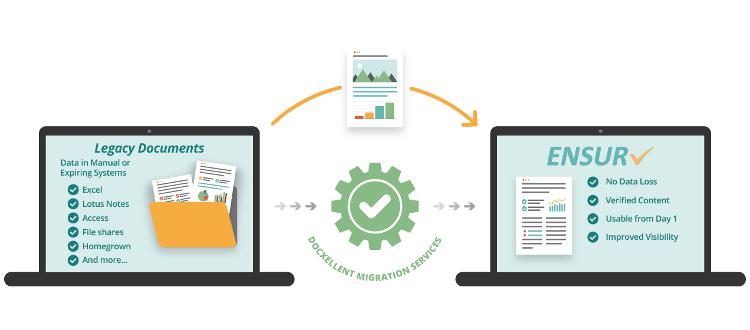
As consumer and market trends continue to shift, managing your supply chain has become more complex than ever before. Luckily, by effectively tracking your company’s own specification data, this process can be streamlined and simplified. In this article we’ll discuss the state of the modern supply chain and examine four benefits spec data can bring to your supply chain efficiency.
Necessities of The Modern Supply Chain
The modern-day supply chain has evolved in recent years, and therefore requires new methods of management. There are two primary catalysts for these changes:
Increased number of specifications
In the past, consumers would take a trip to the store and see one version of a product. Now, in order to keep up with rapidly changing consumer expectations and needs, each product has multiple variations. Of course, expanding product lines equates to an increase in specifications. As a result, it has become nearly impossible to manage all these specs with a manual home-grown system.
Globalization
Secondly, globalization has changed the expectation of supply chain communication. Due to the technological advances of the twenty first century, producers can now reach consumer markets all over the globe. Your suppliers, employees, and customers are no longer within the physical area where you manufacture your product. This means you may need to effectively communicate across different countries and time zones. Without an effective means to do so, your company can fall victim to poor quality management and slower times to market.
Your company can combat the negative effects of the changing supply chain by using your spec data to your advantage and managing it well. In the next section, we’ll discuss a few benefits that can come from effective specification management.
How Can Managing your Specification Data Help Increase Efficiency?
1. Improve supply chain visibility
The key to a fully transparent supply chain process is ensuring your team has access to detailed data throughout the distribution process. This would include things like an order receipt by supplier, status of raw materials to complete order, delivery date from supplier, current order status, etc. With a well-managed spec process, these documents and data would be organized and securely stored in one system, creating a single source of truth within your document pipeline.
This type of data management strategy gives you an unrestricted look at everything happening throughout your supply chain as your products are manufactured. Your team will be able to easily track who oversees a spec, where it is in its lifecycle, who’s accessed it, who’s printed it, and who is responsible for maintaining and seeing it move into production. It can also help to guarantee that the highest quality business processes are being followed to ensure you are meeting regulatory requirements. Your supply chain becomes better connected from beginning to end, allowing your company to speed up its processes and decrease time to market.
2. Enable supplier collaboration
Additionally, an effective specification management process is a perfect tool for improving your company’s collaboration, both internally and throughout your supply chain. By keeping track of your specs within a specification management system (SMS), your employees, stakeholders and suppliers can access necessary spec data in a secure and controlled way from anywhere, anytime.
Within a specification system, automated notifications can be set up to alert employees, suppliers, and CMOs when specs become effective, ensuring that all stakeholders are on the same page. Additionally, employees can easily make changes that will update throughout your product line and automatically notify suppliers and CMOs of the changes. With a fast, secure way to collaborate with your suppliers and vendors, your organization becomes more agile in a fast-changing marketplace.
3. Manage substitutes
With the COVID-19 pandemic still affecting supply chains around the globe, companies have had consistent issues with getting their hands on all the materials they need for production. Your company can avoid the issues caused by low supply and keep your supply chain up and running with a well-tracked specification data process. An effective spec management software offers features to help you track unavailable raw materials so you can quickly find substitutes, such as:
- The ability to view where used across your product line
- Create reports on material use
- Define substitutes
- Collaborate with suppliers on material substitutions more quickly and efficiently than ever before
This gives your company the ability to control substitutes on specs when a product up the supply chain is unavailable. Even further, if you do need to make a change to a spec because of a swapped material, you can quickly and easily push the updated spec to suppliers and contract manufacturers at different locations. Your supply chain becomes better connected and much more efficient when dealing with production obstacles.
4. Properly manage SKUsAs we touched on earlier, the tendency for consumer needs to shift rapidly has created a market of many different specifications. In technical terms, the process of creating massive amounts of different products to satisfy your market is referred to as SKU proliferation. In general, SKU proliferation has a negative effect on production because it creates a vast number of SKUs for companies to manage without offering a proper way to manage them. Consequently, even though a large number of products are being made to meet customer needs, less desired products will begin to be overlooked in terms of the supply chain. Because there is no clear specification data tracking system, these products will be unnecessarily produced, leading to decreased profit margins.
With an efficient spec management process, your company can begin the shift into a SKU rationalization technique instead. Rather than creating and keeping unnecessary products, SKU rationalization is the process of reducing the number of SKUs or underlying component parts based on lack of performance or duplication. Proper specification management allows companies to see which of their merchandise should be discontinued and which should be invested in further. By ridding your supply chain of underperforming SKUs, your company can free up time and resources to put towards your more profitable products.
We are in a time of constant supply chain shifts. Whether it’s caused by a global pandemic, market expectations, consumer needs, or changing regulatory rules, your company needs to stay ahead of the curve. If you utilize your specification data and keep a well-organized specification management process, your company can optimize your supply chain efficiency by increasing visibility, improving supplier collaboration, refining substitute management, and enhancing your SKU control.
When you want to streamline your specification management and create a more efficient supply chain, you can depend on the ENSUR Specification Management Software. To learn more about how an SMS can benefit your production efforts, contact us now.




























